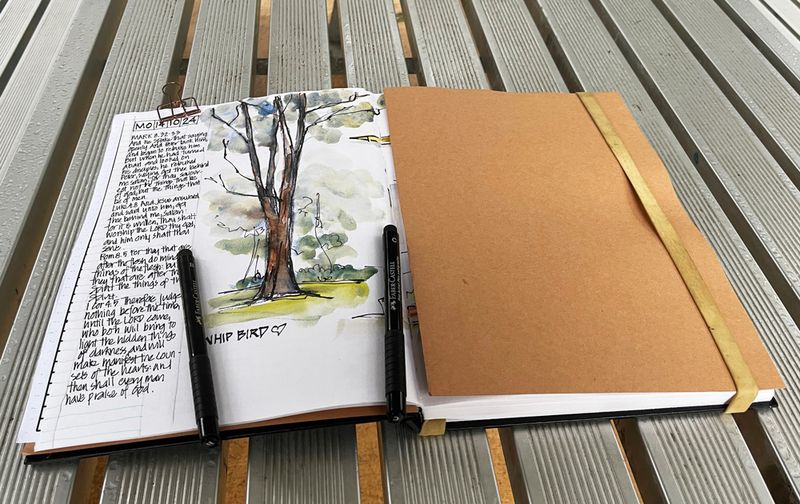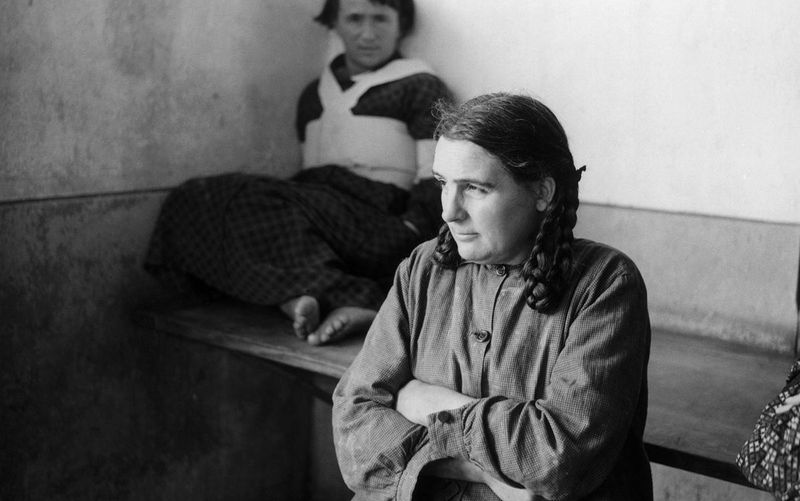20 Phrases Deeply Unhappy People Use on a Regular Basis
People don’t always come out and say they’re unhappy. Most of the time, you see it in their eyes, hear it in what they don’t say, or notice it in the way they talk about the world—like they’re half-apologizing for how small they’ve made themselves. Unhappiness is sneaky; it doesn’t always shout.
Sometimes it just sighs, sometimes it shrugs, and sometimes it hides behind a tired “I’m fine.” If you listen a little closer, you’ll see patterns—those same phrases that spill out, wrapped around old disappointments or things they never dared to want.
These little sentences? They’re like breadcrumbs leading back to someone’s pain, frustration, or the feeling that life’s become a place they don’t quite fit. My hope: if you spot something familiar, it’s not to judge, but to maybe start healing, together. Here’s what I’ve noticed, friend.
1. “It doesn’t matter.”

You can hear the exhaustion tucked behind this one, right? It’s the phrase of someone who’s been burned, brushed off, or told “no” just enough times to stop fighting. If you’ve ever said it, you know it doesn’t actually mean nothing matters—it means everything matters, but it feels safer to pretend it doesn’t.
Over time, it turns into armor. Rather than risk being disappointed or let down, unhappy people will convince themselves to care less. It’s a self-preservation move that only really works on the outside.
Inside, that unspoken hope or hurt still simmers, waiting for someone to notice. Saying “It doesn’t matter” is like building a wall and hiding the best parts of yourself behind it.
2. “I’m used to it.”

Let’s be real, nobody wants to get “used to” feeling overlooked or disappointed. When someone drops this line, it’s not about strength—it’s quiet surrender. It’s a way of saying, “This always happens, so I’ve stopped expecting better.”
You might notice it in relationships, at work, or even with family. The bar drops lower and lower each time, until survival mode becomes the new normal. It’s not comfort—it’s resignation, the kind you feel in your bones.
If you catch yourself saying it, ask if you’re settling because it’s familiar, not because it’s right. Sometimes “I’m used to it” is just heartbreak wearing a brave face.
3. “I don’t want to bother anyone.”

Shrinking yourself to fit someone else’s comfort zone? That’s the vibe here. It’s a sentence that feels polite on the outside but holds a heavy story within.
People who use this phrase have usually learned—sometimes the hard way—that their needs aren’t always welcomed. They start thinking, “Maybe if I just stay quiet, people will stick around.”
Every time you swallow your feelings just to keep the peace, you chip away at your own sense of worth. The truth is, caring isn’t a burden—but unhappy people forget that, one apology at a time.
4. “What’s the point?”

This one stings because it means hope has packed its bags. Saying “What’s the point?” usually comes after too many slammed doors or disappointments that stack up like bricks.
It’s not even anger anymore—it’s numbness and a deep sense of futility. When you hear this phrase, you’re listening to someone who’s tired of fighting losing battles.
If you catch it on your own lips, pause. Sometimes, the point isn’t about winning—it’s about not letting life silence you completely. Even tiny sparks matter when everything feels dark.
5. “I’m just tired.”

We all get tired—but this is a different kind of tired. It’s not just about sleep; it’s about carrying invisible weight for way too long. You can spot it in people who never really seem to rest, no matter how long they nap.
Sometimes it’s code for “I’m overwhelmed, I’m sad, and I don’t know how to say it out loud.” You might see this phrase pop up when someone’s juggling too much and feeling like they’re always dropping the ball.
If you hear it often, don’t just offer coffee—ask about the load they’re carrying. Emotional tiredness leaves marks you can’t see, but they’re real.
6. “It is what it is.”

Sometimes this sounds zen, but more often, it’s resignation in disguise. It’s what people say when they can’t find another way out or don’t believe change is possible anymore.
You might hear it during tough conversations or when life throws yet another curveball. It’s a way to stop hoping, because hoping hurts too much.
There’s a heaviness in this phrase, like a sigh that never ends. Deep down, “It is what it is” often means “I wish it could be different, but I’m too tired to fight.”
7. “I shouldn’t feel like this.”

Ever felt guilty just for feeling sad? That’s what’s happening here. This phrase pops up when someone tries to logic their way out of pain, as if emotions need permission to exist.
It’s a sneaky little shame spiral: “Others have it worse, so I shouldn’t feel bad.” But feelings don’t vanish just because they’re inconvenient.
If you find yourself thinking this, remember—pain is real, even when it’s quiet. You can’t heal what you refuse to feel.
8. “I’m fine.”

Classic cover-up move. “I’m fine” is the script we memorize when we’re young, then keep using long after it stops serving us. It’s a shield—short, simple, and impossible to argue with.
But if you listen closely, the tone always gives it away. There’s a flatness, a hollowness that practically begs someone to look closer and ask again.
It’s the lie we cling to because the truth feels too messy or vulnerable. Sometimes “I’m fine” means “Please notice I’m not.”
9. “I’m just being dramatic.”

Here’s a twist: sometimes, unhappy people call themselves dramatic before anyone else can. It’s a way to minimize their pain, like putting a warning label on their feelings.
You’ll hear this when someone’s afraid their emotions will be “too much” or “too inconvenient.” It’s pre-emptive self-gaslighting, and it chips away at self-respect every time it slips out.
If you catch yourself saying this, pause. Your feelings are valid, no matter how messy or inconvenient they seem.
10. “It’s my fault.”

Self-blame is a heavy coat to wear, especially when it doesn’t fit. Unhappy people often blame themselves for things far beyond their control.
It’s a sneaky reflex, born from the belief that if they’re always at fault, maybe they can prevent future pain. But guilt like this doesn’t protect—it punishes, over and over.
If “It’s my fault” sounds familiar, remember: nobody deserves to shoulder every burden alone. Grace isn’t just for others—it’s for you, too.
11. “I can’t afford to think about that right now.”

Avoidance in a power suit. When life feels like too much, this phrase steps in to keep things from spilling over. It’s not laziness—it’s self-preservation when pain feels too big to handle.
You’ll see it when someone can’t face what’s hurting them, so they tuck it away for “later.” The trouble is, later never really comes. The feelings just wait, piling up quietly in the background.
If you hear yourself say this, try to notice what you’re running from. Even a tiny bit of honesty can be the start of something softer.
12. “I don’t really have time for hobbies.”

Somewhere along the line, joy becomes optional. Unhappy people often let go of the things that once sparked excitement because “real life” feels too demanding.
Before you know it, hobbies are a distant memory—something for other people, not for you. Each time you skip what makes you smile, you inch further away from yourself.
It’s about more than free time; it’s about believing you’re worth the effort. Making space for fun isn’t selfish—it’s survival.
13. “I guess this is just my life now.”

Hopelessness doesn’t always look dramatic—it can be quiet, settled, almost invisible. This phrase is the sound of someone giving up on change.
It’s the silent surrender to routines that feel like traps, to days blending together. You might hear it when dreams feel out of reach and the future shrinks to fit old disappointments.
If you hear yourself thinking this way, remember: even a tiny shift can start to break the spell. Resignation is not the end of your story.
14. “Other people have it worse.”

Empathy is great, but using it to erase your own pain? That’s emotional self-cancellation, and it’s sneaky.
When unhappy people say this, they’re usually trying to guilt themselves out of feeling sad. It becomes a competition nobody wins because pain isn’t a race.
If you’ve ever tried to convince yourself you don’t “deserve” to be upset, hear this: comparison doesn’t heal, it only hides.
15. “I just want everyone else to be okay.”

Caretaking is lovely—until it’s the only thing you know how to do. This phrase can sound noble, but sometimes it covers up the fact that you’ve forgotten how to care for yourself.
You’ll see it in people who put everyone else’s needs first, then wonder why they feel empty at the end of the day. It’s self-sacrifice that sneaks in as “love.”
If you catch yourself saying this, ask whose comfort you’re prioritizing. Sometimes, taking care of yourself is the bravest thing you can do.
16. “I don’t really feel anything anymore.”

Numbness isn’t peace—it’s a sign you’ve been hurting so long, you’ve stopped expecting to feel better. There’s a chill to this phrase, like giving up on color in a world that used to be bright.
You might notice it most in people who’ve been let down again and again. It’s a coping skill, but it comes at a big cost.
If you recognize this in yourself, know that feeling nothing is still a feeling, and it’s not forever. Sometimes, numbness is the mind’s way of protecting a heart that needs time to heal.
17. “I don’t expect much.”

Lowering the bar never truly cushions disappointment—it just shrinks your world. This phrase is a little heartbreak in disguise, built from past letdowns and dashed hopes.
It’s the voice of someone who’s learned to ask for less because asking for more feels risky. Soon, “not expecting much” turns into “not expecting anything at all.”
If these words sound familiar, know that wanting more isn’t greedy—it’s human. Your hopes are allowed to take up space.
18. “I’m just bad at relationships.”

Blaming yourself for every failed connection gets lonely fast. This phrase is how unhappy people make sense of heartbreak—by deciding it’s just who they are.
It’s easier to believe you’re the problem than to risk hoping for something better next time. But relationships are messy, and nobody’s “bad”—they’re just learning.
If you hear this, remember: you’re not defined by what didn’t work. Growth comes from trying again, not from giving up.
19. “That’s just how I am.”

This phrase puts up a stop sign. It’s the anthem of emotional standstill, wrapped in stubbornness and a dash of defensiveness.
People say it when they’ve stopped believing change is possible, or when they’re tired of being misunderstood. It’s a way to shut down the conversation before it even starts.
But here’s the secret: you’re allowed to grow. Being stuck isn’t a personality trait—it’s just a chapter, not the whole book.
20. “I don’t really talk about that.”

Secrets have weight, and this phrase carries it all. It’s what someone says when they want to keep pain hidden, safe from judgment or pity.
But what doesn’t get said never really goes away. Instead, it grows heavier in the dark corners of your heart.
If there’s something you never talk about, consider sharing a piece, even just with yourself. Lightness comes from letting truth breathe, even if just a little.







